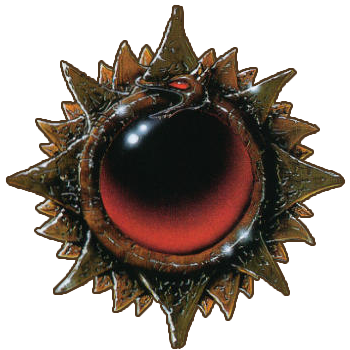Because they’re the worse guys, defeating them through the most nauseating means possible is always justified. “Some of us will cross the line, to make sure the line’s still there in the morning,” Adler says just before Cold War’s final mission, echoing the rationale of the 2019 Modern Warfare’s Captain Price when he tells a green SAS sergeant that torture is a harsh but excusable way to ensure global peace. The real-world parallels to anyone familiar with Bush Jr.'s administration are obvious, but they extend beyond military terror. Concentrating on the “worse guy” is a simple way to reduce the complexities of malignant politics into a single, easily hateable villain, and it’s short-sighted for that same reason. The “worse guy” is how ideological currents end up summarized in single political figures. It’s why someone can look forward to getting back to lazy brunch time conversations once Donald Trump is out of office and express genuine surprise once a new manifestation of the same evils that brought him to power resurface again down the road. Nothing is solved by defeating a figurehead. The worse guy is legion. Or, as the Russian man we thought was Perseus tells Bell when she meets him at the end of the game and realizes he’s only one head of a conspiratorial hydra: “As if Perseus could be a single person working alone. So American ….”
The irony of Black Ops taking this wriggly, plausibly unopiniated approach to storytelling is that it ends up replicating the same, quiet form of propaganda that the series’ characters fight against over and over again. In teasers for Cold War, the game’s publisher, Activision, ran a clip of KGB defector Yuri Bezmenov discussing the “Marxist-Leninist plot” of long-term ideological subversion. Rather than use overt propaganda, Bezmenov says, a nation can be programmed through subtler means. Bezmenov was a militantly anti-communist crank who saw the secret police lurking behind every movement toward social equality, but his thoughts in Cold War’s trailers couldn’t be more appropriate as an unintended indictment of the game’s own effect.
Call of Duty occupies the curious position of being too readily dismissed by some audiences as mindlessly jingoistic and too readily accepted by other players as mindless entertainment. It should be said that these games are both far smarter and far more expertly crafted than these sort of blanket opinions, positive or negative, might suggest. The knotted meaning of these games—the ways they celebrate certain ideologies and condemn others—requires consistent untangling. They’re not blatant celebrations of American imperialism or blithe love letters to militarism. They’re trickier texts that flood players with apparently contradictory opinions on history and modern events while their real worldview floats beneath the more distracting flotsam and jetsam of controversy.
In this sense, games like Cold War are always worth keeping an eye on and engaging with not on the level of easy condemnation, but as massively influential works of pop culture that deserve a cooler kind of scrutiny. Otherwise, their messages will go unconfronted and the queasy worldview buried beneath their layers of twisting meaning and obscured by moral fog will avoid the sort of examination it deserves, going uncontested as it implants bit by bit in the opinions of its players.
“Vietnam Syndrome” - Yussef Cole
America’s political landscape is rarely forced to be as honest. In reckoning with Vietnam, America took the position of the latter Mianaai: we chose to ignore reality and make up a story that allowed us to continue growing our empire, unchanged. Cold War lives within this uneasy blind spot. It recognizes, as liberal history does, that Vietnam was bad. But it also refuses to learn any moral or foundational lessons from the experience. It refuses to recognize the humanity of the men and women who fought us, who challenged our assumed superiority, who brought us to our knees.
Within this blind spot we seemingly must continue doing the same thing over and over, murdering and shooting the same people ad nauseum. In Cold War’s mind-control mission, this manifests literally, with the player’s character stuck running through the same recursive loop of memory, the same rice paddies and hamlets, the same firefights, the same bodies. We’re forced to circle this visual drain until we finally find the unrelated intel, and Vietnam is washed cleanly away, slotted back into history until it becomes needed once again.
Like the Hollywood industry it leans heavily on, American videogames, particularly ones like Call of Duty are inextricably tied up in the baggage of empire. Iran-Contra mastermind, Oliver North, consulted on Black Ops II. Its lead writer, Dave Anthony, went on to work for the Department of Defense. Many of the guns used in these games are based on real models and uncounted sums are paid into the weapons industry as licensing fees. In this irredeemably compromised model, it is vital to pay attention to how the victims of America’s imperial ambitions are portrayed, how little care is afforded to the people of these countries, and how that reflects the mainstream understanding of the conflicts that rage today. As long as we continue to misunderstand and ignore the implications of these wars in our art we will continue to do so in our politics, pushing mournfully, and blindly, into the future.
https://bulletpointsmonthly.com/2020/11/20/call-of-duty-black-ops-cold-war-vietnam-syndrome
